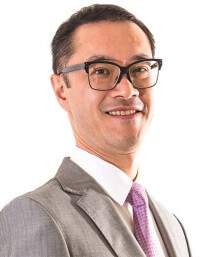Specialist Dental Group has launched an on-going series of blog posts by our individual dental specialists. All views provided are the dentist’s own opinions and are posted on this blog as part of our on-going efforts to educate the public about dental issues and other matters of interest.
This is the second part of my blog post on relocating to Singapore. If you missed the first part, you can read it here.
***
One snowy day in March 2013, we left Heathrow and boarded Singapore Airlines direct to our destination. The slight trepidation we felt was alleviated by the excellent Singapore Airlines service – which is in my opinion, nothing like British Airways. The welcome we got on arrival at Changi Airport was as warm as the weather. Even the YMCA – our home for the next few weeks was like no other YMCA we have stayed at. It was more like a hotel than hostel.
Employment
A prerequisite for immigrating to Singapore is a job offer and contract in writing. Without this, one cannot obtain an Employment Pass and Dependant’s Passes for family members. I found the Ministry of Manpower very efficient, courteous and on the whole it was as pleasant an experience as it could be.
Likewise, Singapore Dental Council was efficient in expediting the professional registration needed before I could start work. I also had to sit for the Prosthodontic Specialist Exit Exam in order to qualify to be a “specialist”. I had been preparing clinical cases for a year. Despite all us of having chest infections after we landed (that’s the fault of the London snow) and were all on anti-biotics, I was successful.
Housing
Next up was looking for a permanent place to live in. Singapore is divided into districts and the most central and sought after attract a premium rent. Property searching is easy as they are all listed on one website, but deciding on which district to live in is not so easy.
Singapore is small and commuting is affordable, efficient, clean and punctual. Coming from London’s antiquated Tube system, I found it strange that a delay on one of the lines made the evening news. This is a daily occurrence in London and not even worth a mention. Hence, choosing where to live is probably more based on budget and if you have kids – the location of the chosen school. Cars are prohibitively expensive so proximity to the MRT or bus network is essential. In the UK, I would think nothing of walking for one or two hours, but in tropical Singapore 10 or 20 minutes is more than enough.
Finding a good property agent is not easy too. I was struck by how friendly the ones I met are, but was fooled into thinking it was anything other than a business relationship. As usual, a recommended agent by a colleague or friend is more reliable than taking a chance with someone you don’t know.
Older properties tend to be larger and less expensive. Prices here are quoted per square foot – a concept that I am not used to in the UK. Another interesting thing to note is that, an old property in Singapore refers to one aged 10 years or more. My flat in London was more than 100 years old, which is twice as old as Singapore!
Some agents would pressure you into a two year tenancy and unlike the UK, it is almost impossible to break your tenancy. You cannot simply give two months’ notice to leave before the tenancy has expired. The only way to break the tenancy is by exercising the Diplomatic Clause which means you have lost your job and have to leave Singapore.
The tenancy agreement favours the landlord and I think is responsible for stagnating the rental market. In practical terms what it means is that even if you no longer like the area or if you changed to an office/school that is further – you can’t move.
Insist on a one year, or even better, a six month contract as it is currently a renter’s market with a surplus of units available. The same goes for negotiating the rent- and don’t be afraid to ask for extras such as a new fridge/TV or other furniture.
Banking
Opening a bank account was easy and I would stick to a local bank. We made the mistake of opening an account with a bank that was also in the UK thinking we would get preferential exchange rates and make money transfer easier. Well I can’t tell you how much time we wasted in the UK and here visiting the branches and in the end we closed both accounts. Money transfer is not an issue and exchange rates were not really any better.
Healthcare
The UK’s National Health Service for all its faults is really a great system, free at the point of delivery. Singapore has no equivalent and private health insurance has to be budgeted for. A good insurance broker recommended by our friends has helped with all insurance related things.
Domestic Help
Then there is the issue of domestic help. In the UK, unless you are quite wealthy or a member of the Aristocracy, nobody has a maid. In Singapore, it is almost more uncommon not to have a maid. Some flats are even built to accommodate a maid with separate sleeping quarters and washing facilities. Being an expat means you don’t have family support and a maid is the extra pair of hands you need. With our second daughter arriving and having tried food deliveries and a cleaner twice a week, we decided to employ some help.

Completing two interviews via Skype, Mary Grace was on her way. After several months of adjustment – no doubt on both sides – things are working as well as it can be expected.
We wonder how we managed before this. We have so much more time with the kids and we can even go for nights out without them. Our family and friends think we are wealthy to have a maid, but it is not exactly Downton Abbey (a popular TV programme about an aristocratic family living in a stately home with an army of servants).
My experiences are typical and I hope in some small way, relating my journey with you will make yours a little easier.
 Dr Steven Soo is a Dental Specialist in Prosthodontics at Specialist Dental Group. He was formerly a Clinical Lecturer at the Eastman Dental Institute and Clinical Teacher at the GKT Dental Institute, both of which are affiliated with the University of London. Dr Soo has a special interest in prosthetic and implant restorative dentistry.
Dr Steven Soo is a Dental Specialist in Prosthodontics at Specialist Dental Group. He was formerly a Clinical Lecturer at the Eastman Dental Institute and Clinical Teacher at the GKT Dental Institute, both of which are affiliated with the University of London. Dr Soo has a special interest in prosthetic and implant restorative dentistry.





